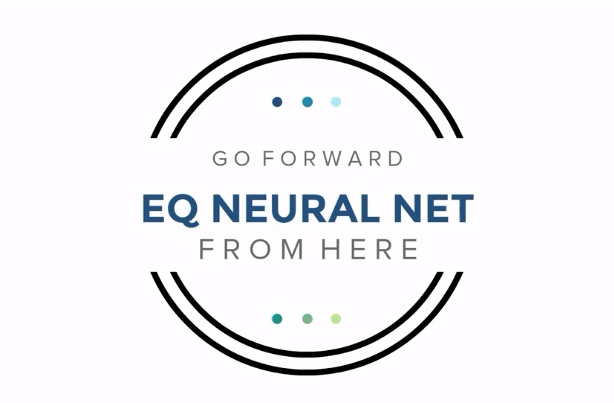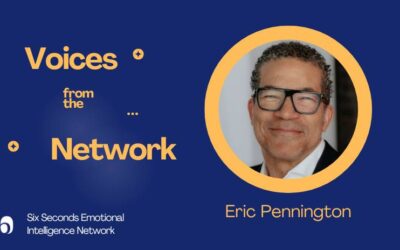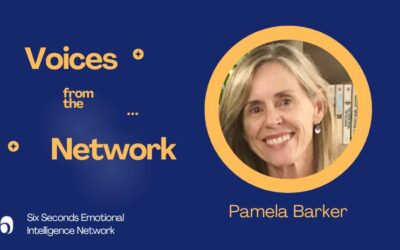1. Achieving work life balance with Australian executives
Carla, a senior corporate executive from Adelaide, Australia, had success in her professional life. Her company hit all its goals, the business grew, and her staff seemed happy. Yet she felt something missing, and she couldn’t put her finger on why she felt so stressed and unhappy. She decided to seek the expertise of her coach, Angela Giacoumis of Careerlink. Using the SEI assessment, Angela provided Carla with objective feedback and a framework for understanding her strengths and competencies under the Six Seconds Model of Emotional Intelligence. The Neural Network, Angela says, turned out to be the “icing on the cake” that helped give Carla practical actions to help turn her life around.
Angela says of her client:
“She was very driven, highly effective, built relationships, and had high drive, optimism, motivation, empathy and purpose scores. At the same time, she had a low score on wellbeing and quality of life. She was working extremely long hours, and so when we initially looked at the SEI data, we explored the implications of high drive and empathy, especially if the empathy is all about giving to others. She was giving so much to others and forsaking her own health and wellness.” After this conversation, Carla went home and thought about some strategies for shifting her situation so that she could practice empathy for herself and her family. Angela then showed her the Neural Net report.
“Wellbeing and quality of life came up, of course. So we looked at what is a specific Noble Goal, and how does wellness show up in all areas of our lives, as a leader, as a mother, as a colleague? We used the Neural Net to look at questions around empathy, her noble goal, and her ability to navigate emotions. I love how with the Neural Net you can interplay the capabilities to deepen the coaching process so clients can really leverage.””
Angela says her client has made major changes since their coaching session.
“She’s changed her working hours, she’s been saying ‘no’, she’s actually learned to set boundaries around her availability for meetings. She’s using her calendar in a way she wasn’t before, and when she finds herself in a stressful situation, we’ve been using mindfulness to pause so that she’s making more considered decisions on what she wants to create in her life. The result and benefits are she’s happier, she’s making better quality decisions, and it’s affecting this other area, her quality of life, in terms of satisfaction and achievement. It’s worked to crystalize a clear path of actions that she can take.”
Careerlink has been using the Neural Net across their business in training programs and coaching, especially after programs. So far, it seems to be very popular, says Angela. “I like that it utilizes EQ data and capabilities I think at a deeper level to probe how they may support the individual optimizing and developing their critical success factor. It identifies each of the capabilities that will help do that, and has probing questions when you’re working with individuals that deepen their understanding of how to pursue that goal. It’s just very powerful.”
And how has the feedback from clients been so far for the Neural Network? Angela says it’s been nothing short of enthusiastic.
“I have had a lot of fantastic feedback really. People love the fact they can see which capabilities can leverage their goals. That excites people, and they can see the relationship and clear pathway between the success factor and score, and which capabilities might be affecting their scores. The linkage is very powerful.”

2. Improving customer service at Middle Eastern airline
These are tough times in the airline industry, with stresses between customers and employees showing up in dramatic ways. But at Qatar Airways, a company that has embraced EQ as a way of inspiring its employees to provide great customer service, the Neural Net has been a boost to an already successful program of EQ training. Kevin Herft is Manager Cabin Services Training at Qatar Airways. He writes,
“EQ has enabled us to change the way we view our vision for the training department and the organization. The focal point of the business is now not just customer service but also the customer experiences and emotional connections that are created. People make choices based on emotions. As such, it is important that our staff feel good and that they deliver that positive energy to our customers. The positive reputation of the EQ workshops has spread to other business units and departments. As a result, I have received requests from the IT, Finance and Engineering teams to attend the EQ classes.”
Once Kevin started using the Neural Net, along with the SEI assessment report, he found another way to help employees give better service and be happier in their jobs. He says it’s easy to understand for clients and coaches.
“The Neural Net is structured in a methodical manner, and the questions posed, specifically under the Success Factors section provides clarity for both parties. Feedback from learners is that the questions were a great tool for helping them to reflect and to think of action plans. The nature of the questions triggered curiosity amongst the learners: they wanted to learn more and there were some who asked if they could implement their action plans and retake the questionnaire after 3 months. There were many learners who were surprised with the accuracy of the report.”
Kevin says that for coaches, it adds a level of depth and meaning and practical language that they previously have not had.
“The coaches on the other hand commented that the previous report showed an average score of the Success Factors, whereas, the Neural Net provides a report that is personalized and which guides the end-user to focus on areas of strength as well as developmental strengths. Overall, it’s insightful data for dialogue.”
3. Providing customized next steps for American coaching clients
Michele Royan, a coach who runs her own consulting company, Integrity Partners in Arizona, U.S.A. agrees that one of the distinguishing factors of the Neural Net is the ability to personalize the results. She says it furthers the practical nature of her other coaching methods.
“The Neural Net contains actionable questions and practical steps to take to implement and expand EQ. It provides a framework for reflection and references individual competencies to deepen client understanding of how they contribute to the outcomes. I have gotten curiosity and energy from my clients to try using these questions for reflection and action steps.”
For clients who want something to refer back to after the coaching session, the Neural Network provides a handy guide:
“Many clients have expressed relief to have something in their hands to refer to frequently. The Neural Net enables clients to focus reflection in a specific direction, based upon their SEI responses. The predictive value of the information is customized for each individual. It would be interesting to see differences in the suggestions over time, as client is working on strengthening their outcomes.”
For more information on the Neural Net and Six Seconds’ other EQ tools, click on the icons below.

What’s new in emotional intelligence?
In the Age of ChatGPT, What Should Teachers Focus On?
AI tools like ChatGPT are transforming education, prompting a shift from knowledge transfer to fostering skills like empathy, creativity, and critical thinking. This article emphasizes the role of Emotional Intelligence in inspiring engagement and purpose, helping educators adapt to the evolving demands of an AI-driven world.
What Should Schools Prepare Us For? Educating for a Future That Inspires and Uplifts
In Italy, only 5% of workers are engaged in their jobs—an economic crisis with deep roots in the education system. What needs to change?
From Enemy to Ally: How Eric Pennington Changed His Relationship with His Own Emotions – and Found His Life’s Purpose
How emotional intelligence helped Eric Pennington transform corporate life setbacks into strengths – and find purpose in both work and life.
Emotional Intelligence at Work: In the Era of AI, What Happens to Human Skills?
Who’s winning the artificial intelligence race: machines or people? Research finds AI investment leads to disinvestment in human skills
Fortifying the Mental Health of the Entire School Community with Emotional Intelligence
Wellbeing program at St. Peter’s Primary replenishes reserves post-COVID: ‘Truly life changing for many of our staff,’ school leaders say. Read the full case study here.
Helping Others Achieve Overall Well-being and Healthy Connections: How Emotional Intelligence Guided Pamela Barker’s Career Path Growth
Pamela Barker’s journey began with healing bodies, but it was her discovery of emotional intelligence that unlocked her true purpose: helping others achieve overall well-being and healthy connections. From her days as a physical therapist to becoming a passionate EQ coach, Pamela’s story is one of transformation, resilience, and the power of connection. Her experience shows that real change starts from within.
- Dragonfly: Social Emotional Learning Goes Outdoors - July 12, 2017
- Coaching with Computers? 3 Life-Changing Insights from the Neural Net - May 24, 2017
- Feelings About Climate Change: Josh Freedman - April 25, 2017






